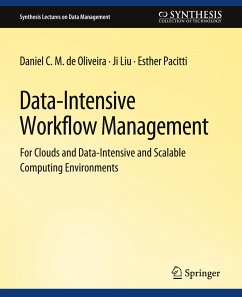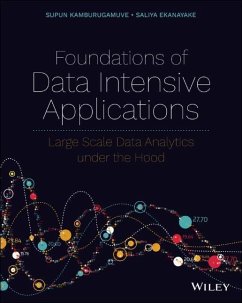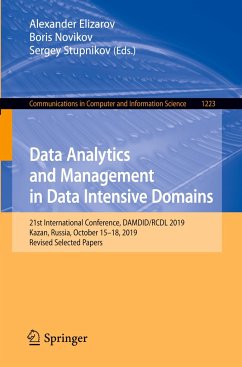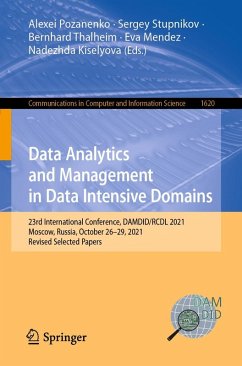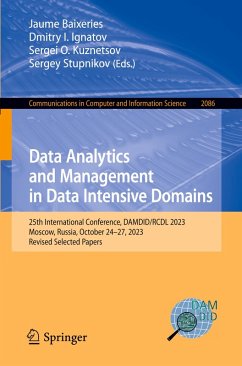
Broschiertes Buch
Knowledge Management in the Development of Data-Intensive Systems
Versandkostenfrei!
Versandfertig in 1-2 Wochen

PAYBACK Punkte
31 °P sammeln!




This book explores the application of established software engineering knowledge and practices to developing big data systems, enhanced with dedicated knowledge management during software development. It looks at explicit knowledge construction and management and system development as a process of social construction of shared knowledge.
William G. Doerner is a retired Professor of Criminology and Criminal Justice at Florida State University, where he served since 1977. A specialist in victimology and law enforcement issues, he holds a Ph.D. in Sociology from the University of Tennessee. Doerner retired from active duty with the Tallahassee Police Department after 29 years of service as a part-time sworn law enforcement officer. He served on the Board of Directors for the National Organization of Victim Assistance and was the Founding President of the Florida Network of Victim/Witness Services, past Director of the Program in Criminal Justice at Florida State University, and a previous editor of the American Journal of Criminal Justice. In addition to other professional accolades, Doerner received the Outstanding Educator of the Year Award from the Southern Criminal Justice Association and was a winner of the John P.J. Dussich Award from the American Society of Victimology. Steven P. Lab is Professor of Criminal Justice at Bowling Green State University. He holds a Ph.D. in Criminology from the Florida State University School of Criminology and Criminal Justice. Lab is the author or co-author of five books, co-editor of one encyclopedia, and the author of more than 50 articles or book chapters. He is a past editor of the Journal of Crime and Justice. Lab has been a visiting professor at the Jill Dando Institute of Crime Science of the University College London and at Keele University in Staffordshire, England, as well as a Visiting Fellow at Loughborough University (England) and a Research Consultant with the Perpetuity Research Group at Leicester University (England). Lab has received grant funding for several large research projects from the National Institute of Justice and has served as a consultant to the Ohio Attorney General's Office, the Arizona Governor's Office, and various offices of the U.S. Department of Justice. Lab is also a past president of the Academy of Criminal Justice Sciences.
Produktdetails
- Verlag: Auerbach Publications
- Seitenzahl: 342
- Erscheinungstermin: 25. September 2023
- Englisch
- Abmessung: 254mm x 178mm x 18mm
- Gewicht: 645g
- ISBN-13: 9781032015972
- ISBN-10: 1032015977
- Artikelnr.: 68716001
Herstellerkennzeichnung
Libri GmbH
Europaallee 1
36244 Bad Hersfeld
gpsr@libri.de
Für dieses Produkt wurde noch keine Bewertung abgegeben. Wir würden uns sehr freuen, wenn du die erste Bewertung schreibst!
Eine Bewertung schreiben
Eine Bewertung schreiben
Andere Kunden interessierten sich für


